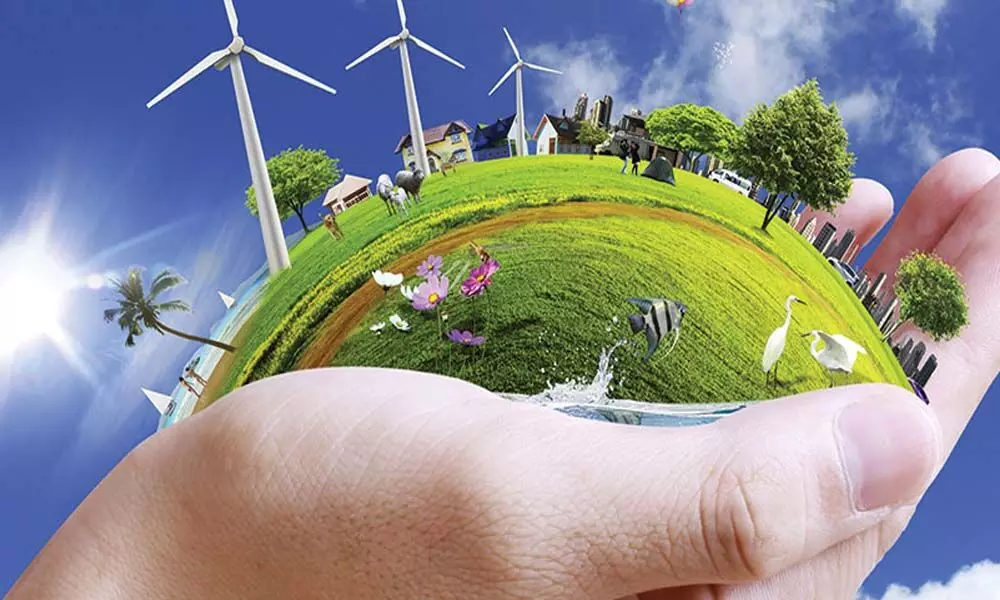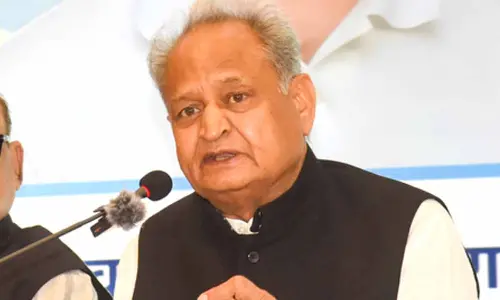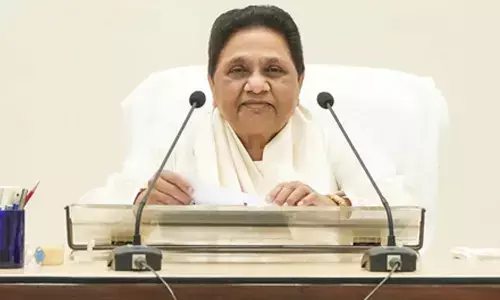India Sets Easier Path for Companies to Switch to Green Energy

India Sets Easier Path for Companies to Switch to Green Energy
India is fashioning rules that will make it easier for companies to switch entirely to renewable power, a key step toward decarbonizing the nation’s fossil fuel-dominated economy.
India is fashioning rules that will make it easier for companies to switch entirely to renewable power, a key step toward decarbonizing the nation's fossil fuel-dominated economy.
The new regulations will allow companies to purchase renewable electricity from state distributors at weighted average prices, called "green tariffs," Power Minister Raj Kumar Singh said at the virtual Bloomberg NEF summit on Tuesday. Currently, most distributors don't give customers a choice for the source of their electricity.
Hurdles for businesses seeking to buy clean power directly from generators will also be eased, including cutting down the waiting period for companies to get access to the distribution network, he said.
The new rules come as India is planning to expand its renewable power capacity nearly five-fold by 2030 to meet its decarbonization targets. Accelerating the use of clean energy in offices and factories, the largest power-consuming segment in the country, will be key to achieving emissions goals.
Green Movement
Companies have shown an eagerness to embrace clean energy, as it will help them improve their environment, social and governance -- or ESG -- scores by reducing their carbon footprint. Tata Power Co., which distributes power in India's financial capital Mumbai, said earlier this month that 37 of its large customers, including IT firms and banks, have opted to switch to green power entirely. The company said it plans to offer green power to more businesses and households.
The country's ailing power distributors have posed a challenge to the growth of the industry and the government is planning to open up the sector, hoping competition will improve services to customers.
Companies have faced difficulties trying to purchase renewable energy. In buying directly from renewable generators, they are still using the network of the distribution utilities, which try to resist such customers from moving away through delaying tactics and putting heavy access charges.
In an effort to ease the situation, those opting for green power will be allowed open access -- when they aren't tied down to the local distributor -- within 15 days, instead of having to wait for months, Singh said. That would force state utilities to either meet the demand or risk losing their high-value customers.
High Prices
Still, providing time-bound open access, though a "welcome move," may be fraught with challenges, according to Debasish Mishra, a Mumbai-based partner at Deloitte Touche Tohmatsu.
Industrial buyers pay the highest prices for grid electricity and help utilities subsidize poorer consumers. Cash-strapped distributors, already facing precarious finances, often resist losing these customers to other suppliers.
"High open-access charges can often create barriers for consumers to directly access green power," Mishra said. "And as per law, that's under the jurisdiction of state electricity regulators who would want to balance the interest of the incumbent utility."
The power ministry has proposed changes in the electricity laws to remove entry barriers in electricity distribution, and Singh expects to seek parliament's approval for the amendments soon, he said.
Offshore Wind
Separately, India will promote offshore wind projects to get to its 2030 goal of 450 gigawatts of renewables capacity, a near fivefold expansion from current levels. That would include 280 gigawatts of solar and 140 gigawatts of wind capacity, the minister said.
Singh cited scarcity of land as one of the challenges for ramping up wind power and said offshore projects will help deal with the issue. The cost of such projects will initially be high and the government is exploring capital subsidies to help developers, he said.
India will fall short of its renewable capacity goal of 175 gigawatts by the next year due to "some hiccups," Singh said, potentially linked to the pandemic. The country has had to extend deadlines for renewable projects due to difficulties in importing equipment and getting workers at construction sites during lockdowns.














